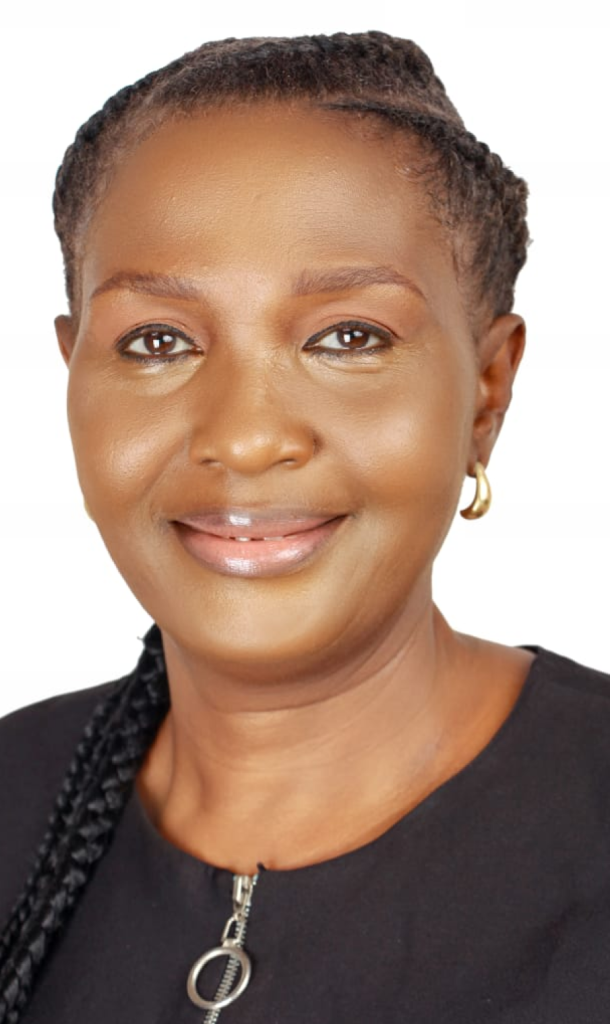A Journey of Empowerment and Humanitarian Work
Foluke Ademokun has spent over three decades working in the fields of civil society, humanitarian efforts, social entrepreneurship, gender advocacy, and policy development. As the Executive Coordinator of the Ajoke Ayisat Afolabi Foundation (AAAF), she is deeply committed to supporting the poor and vulnerable in Nigeria. In an insightful conversation, she reflects on her journey, the work of the foundation, and the broader challenges faced by those in need.
The Beginnings of a Humanitarian Career
Ademokun’s career in humanitarian work began after she graduated from university. She was introduced to the world of non-governmental organizations (NGOs) through the African Women Empowerment Guild (AWEG). Under the mentorship of Dr. Mrs. Nosa Aladeselu, who founded AWEG, she served as the group’s secretary. Her focus has always been on capacity building, particularly for women and girls. She emphasizes the importance of empowering individuals to overcome societal stereotypes, stigmatization, and biases—both conscious and unconscious.
Her work also includes social and environmental impact analysis, as well as inclusion activities that ensure marginalized groups have a voice in decision-making processes.
The Ajoke Ayisat Afolabi Foundation
The Ajoke Ayisat Afolabi Foundation was established in memory of a woman who dedicated her life to helping orphans and those unable to meet their basic needs. After her passing, her children created the foundation to continue her legacy. Ademokun joined the foundation in 2016, bringing in management expertise. Despite the challenges, she describes the experience as rewarding, driven by the mission to support the most vulnerable members of society.
Targeting Vulnerable Groups
The foundation primarily focuses on women and children, especially widows, who are often socially and economically disadvantaged. While many assume that welfare services are sufficient, Ademokun stresses the importance of education and empowerment. She believes that sustainable change comes from development initiatives, which require collaboration between civil society and government.
Recent Programmes for Women and Widows
The foundation runs various programmes aimed at improving the lives of women and widows. These include promoting their rights, providing knowledge and resources for informed decision-making, and offering skill-building opportunities. The foundation also supports micro-enterprises owned by women and helps pay tuition fees for children whose mothers cannot afford schooling.
In addition, the foundation contributes to national and international policy discussions on women’s rights. It collaborates with organizations such as the Federal Ministry of Women Affairs and hosts events on occasions like International Widows Day.
Measuring Long-Term Impact
Measuring the long-term effects of these programmes is crucial. Ademokun highlights the importance of reporting and feedback from beneficiaries. Testimonies, videos, and community responses help gauge the success of their work. The foundation also conducts follow-ups to assess whether the programmes have had a lasting impact.
Supporting Children Through Education
The foundation has made significant contributions to children’s education. It sponsors a national essay competition for senior secondary school students, encouraging them to engage with important societal issues. Winners receive prizes such as laptops and other educational tools. The foundation also provides infrastructure and supplies to schools, including desks, whiteboards, and photocopiers.
Additionally, it addresses period poverty by distributing sanitary items to girls and training teachers to produce reusable pads.
Partnerships for Sustainable Change
Collaboration with the private sector and government is essential for the foundation’s work. Ademokun emphasizes the need for partnerships to expand their reach and impact. They have worked with local governments to establish primary healthcare facilities and seek support from other organizations to better serve the vulnerable.
Expanding Reach Across Nigeria
The foundation has grown from a local organization to a national entity with offices in Lagos, Zaria, Kaduna, Umuahia, and Abuja. Their programmes are open to all vulnerable people across the country, including scholarship recipients in states like Abuja, Kaduna, and Oyo. They have implemented initiatives focused on teenage pregnancy, vocational training, and public health outreach.
Policy Recommendations for Better Protection
Ademokun advocates for policies that protect the rights of widows and vulnerable women. She recommends a comprehensive social protection policy, legal reforms, and the establishment of a Widow’s Fund. This fund should provide interest-free credit, psychosocial support, and access to medical care for widows and their families.
Challenges and Needed Support
As a nonprofit, the foundation relies on external support to sustain its work. Funding, volunteer assistance, and pro bono services are critical. Advocacy against discriminatory practices against widows is also essential for changing societal attitudes and behaviors.
Advice for Government and the Public
Ademokun urges the government and the public to engage more actively in addressing the needs of the poor and vulnerable. She believes that empowering the disadvantaged with life skills and problem-solving abilities will enable them to contribute positively to society and the nation.






